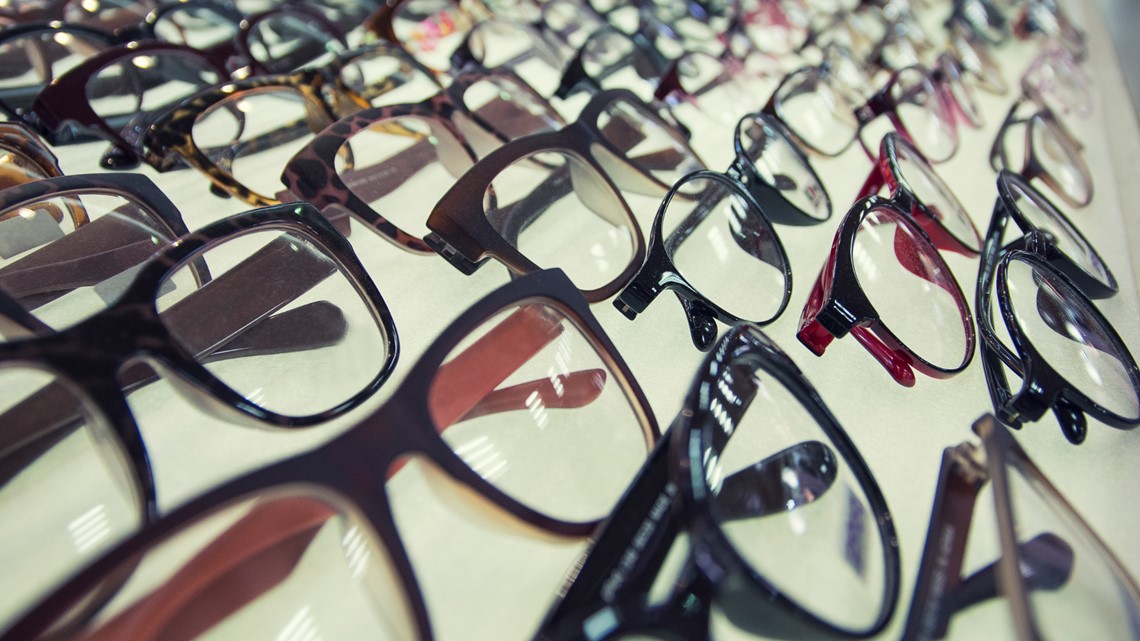WASHINGTON — QUESTION:
Are people who wear glasses less likely to develop COVID-19?
ANSWER:
There's no definitive evidence of this.
SOURCES:
- Dr. Sonal Tuli, Professor and chair of the Department of Ophthalmology at the University of Florida
- Dr. Kathyrn Colby, Professor and chair of the Department of Ophthalmology at NYU Langone Health
PROCESS:
Some people are under the impression that people who wear glasses are more protected against coronavirus sourcing a study out of northern India.
Lots of news organizations published the findings in this report, which was published online in mid-February. It claims that people who wear glasses are up to three times less likely to catch COVID-19.
But not everyone's convinced by the headlines.
So we're Verifying: are people who wear glasses less likely to develop COVID-19?
Our Verify researchers spoke with two professors who are both chairs of their respective departments of ophthalmology, Dr. Sonal Tuli at the University of Florida and Dr Kathryn Colby from NYU Langone Health. We also looked at the study many news agencies are quoting, a research article out of India.


“We don't have any evidence that proves that people who wear glasses are less likely to develop COVID-19,” Colby said.
While our experts both said it theoretically makes sense that glasses could help, they agreed there's nothing conclusive right now.
"So at this point, we cannot tell you for certain that it would make a difference to you if you wore glasses, as far as reducing your rate of getting COVID,” Tuli said.
Both experts took a look at the study which included 304 COVID-19 patients in northern India.
Of those patients, 58 said they wore glasses for more than eight hours or sunglasses when they were outside. The study concluded that that group’s risk of catching COVID-19 was about 2-3 times less than patients who did not wear glasses consistently.
Dr. Colby pointed out, this study is only a pre-print, which means it hasn’t been peer-reviewed.
“I don't put any stock in publications that haven't gone through the peer-reviewed process," Colby said. "This particular study, I read through it, it has substantive design problems.”
The report was published on a website called medRxiv.
On their about page, the website says that preprints “should not be relied on to guide clinical practice or health-related behavior and should not be reported in news media as established information.”
Our researchers contacted the author, Amit Kumar Saxena Senior, who said that she has also submitted her study to other journals as well for peer review.
For this study, Saxena chose only to include patients with mild COVID-19 and did not include patients with moderate and severe illness.
"Did the same criteria apply to people with more severe disease?" Tuli said. "And we don't know the answer to that, because they were excluded from the study.”
"Basically, the author's picked a patient population without rationale," Colby said. Colby sits on the editorial board for medical journals JAMA Ophthalmology and Cornea, and said this article wouldn't make the cut for either.
In an email to the Verify team, Saxena said that patients with moderate and severe COVID-19 were not included in her study because it wasn't easy for them to answer the questionnaire and that, “the ethical committee did not give permission to get answers from seriously ill patients.”
In the study, the author noted several limitations including the sample size being small, the study period short and that, "more studies should be done to know the effect of using spectacles on the epidemiology of COVID-19.”
Saxena told our researchers via email that she hoped to share her viewpoint that "eyes may be [a] potential site of entry of the virus SARSCoV-2."
Experts we spoke to weighed in.
"It's a good pilot study, something that we want to look at, and then build from, and see if there could be other studies that could be done that might have a more controlled environment to look at them," Tuli said.
BOTTOM LINE: As is, Colby explained, you can't really draw any conclusions from the study.
"You can't base any decisions on something that doesn't go through the peer review process," Colby said. "That's kind of the cornerstone of our medical knowledge expansion process."
So we can Verify, our experts say at this point there is no definitive evidence that glasses-wearers have a smaller risk of developing COVID.
While we spoke with our two eye care specialists, we asked them a question we've seen bubbling online: How can you prevent your glasses from fogging up when you’re wearing a mask?
Spoiler alert: It's a trick Tuli and Colby said surgeons have been doing for years, using paper or medical tape.
"Put a little bit of tape across your nose right on the top of the mask," Tuli said. "It's cheap and it's very, very effective."

